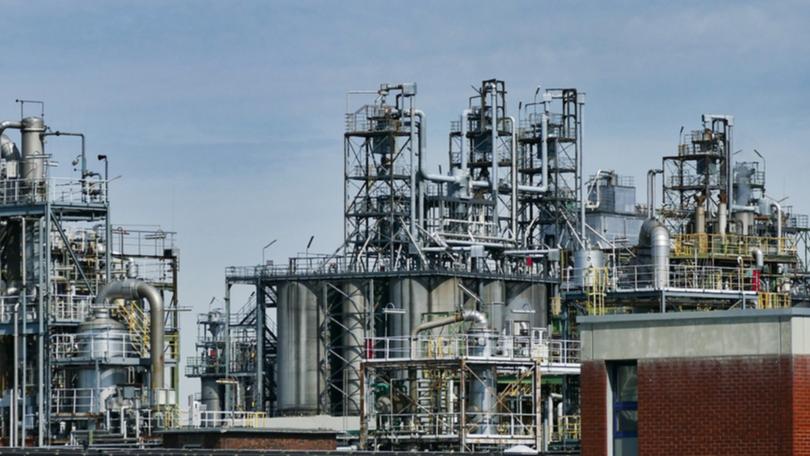Oil prices to remain elevated as Middle East tensions threaten a wider conflict, analyst warns
Tensions in the Middle East and the risk of a wider conflict will keep oil prices elevated, according to this Commonwealth Bank of Australia commodities strategist.

Tensions in the Middle East and the risk of a wider conflict will keep oil prices elevated, said Vivek Dhar, mining and energy commodities strategist at the Commonwealth Bank of Australia.
Oil prices rose on Monday after Israel’s Air Force struck targets in Lebanon with over 100 fighter jets before the Iran-backed group fired more than 320 rockets into Israel.
US West Texas Intermediate crude was up 0.75 per cent at $US75.39 ($111.26) a barrel, while Brent crude rose 0.67 per cent to $US79.55 ($117.40).
Sign up to The Nightly's newsletters.
Get the first look at the digital newspaper, curated daily stories and breaking headlines delivered to your inbox.
By continuing you agree to our Terms and Privacy Policy.Iran-backed Hezbollah said the strikes were in retaliation to Israel’s killing of senior commander Fuad Shukr in Beirut last month. Israel said its pre-emptive strikes were aimed at foiling a bigger attack by the Hezbollah, Reuters reported.
“While market expectations are centered on Iran’s attack hurting Israel without triggering a wider regional conflict, Israel’s response will be equally important. And Israel’s response may include an attack on Iran’s oil supply and related infrastructure, which would put at risk 3 - 4 per cent of global oil supply,” Mr Dhar said.
Cedric Chehab, managing director and head of global risk at research firm BMI said the exchange of fire on Sunday does not mean that an “all-out war” is imminent.
Speaking to CNBC’s “Squawk Box Asia,” Chehab said that “what Hezbollah wanted to do, what Iran wanted to do, was to essentially allow for deterrence. So, [to] exercise that deterrence, and they’ve done that.”
While there is a risk that the confrontation spirals out into a wider conflict, there is still room for de-escalation, he added.
Both Israel and Iranian leaders “do not want this to get out of hand and to escalate . . . don’t forget, Iran has a new president who’s untested, and the idea is to apply pressure on Israel, but not necessarily engage in direct confrontation.”
While Mr Dhar agreed with Mr Chehab’s view that the events on Sunday are unlikely to be the catalyst for an all-out war in the region, he pointed out Iran has yet to retaliate against Israel following the assassination of Ismail Haniyeh, the political chief of Hamas, in Tehran last month.
Mr Dhar also said the progress of Gaza truce talks will be an indicator of how Iran, Hezbollah, and Hamas interpret the events over the weekend.
Early Monday, Reuters reported that there was no agreement over ceasefire in talks on Sunday regarding the Gaza conflict, with Egyptian security sources telling the agency that neither Hamas nor Israel agreed to proposals presented by mediators in Cairo.
CBA’s Mr Dhar added while the escalation hurts truce talks at face value, the fact that Israel managed to thwart Hezbollah “may force Iran and its proxies to concede that Israel is in a position of power, particularly with U.S. backing, making the truce talks more palatable.”
He also forecasts that Brent futures will trade between $US75 ($110.70) and $US85 ($125.45) a barrel in September, with more potential upside if hopes for a truce in Gaza diminish, and as an Iranian reprisal against Israel is still “on the cards.”
“More broadly, the risk of a wider conflict in the Middle East that permanently embroils Iran is an upside risk to our outlook.”
Originally published on CNBC
